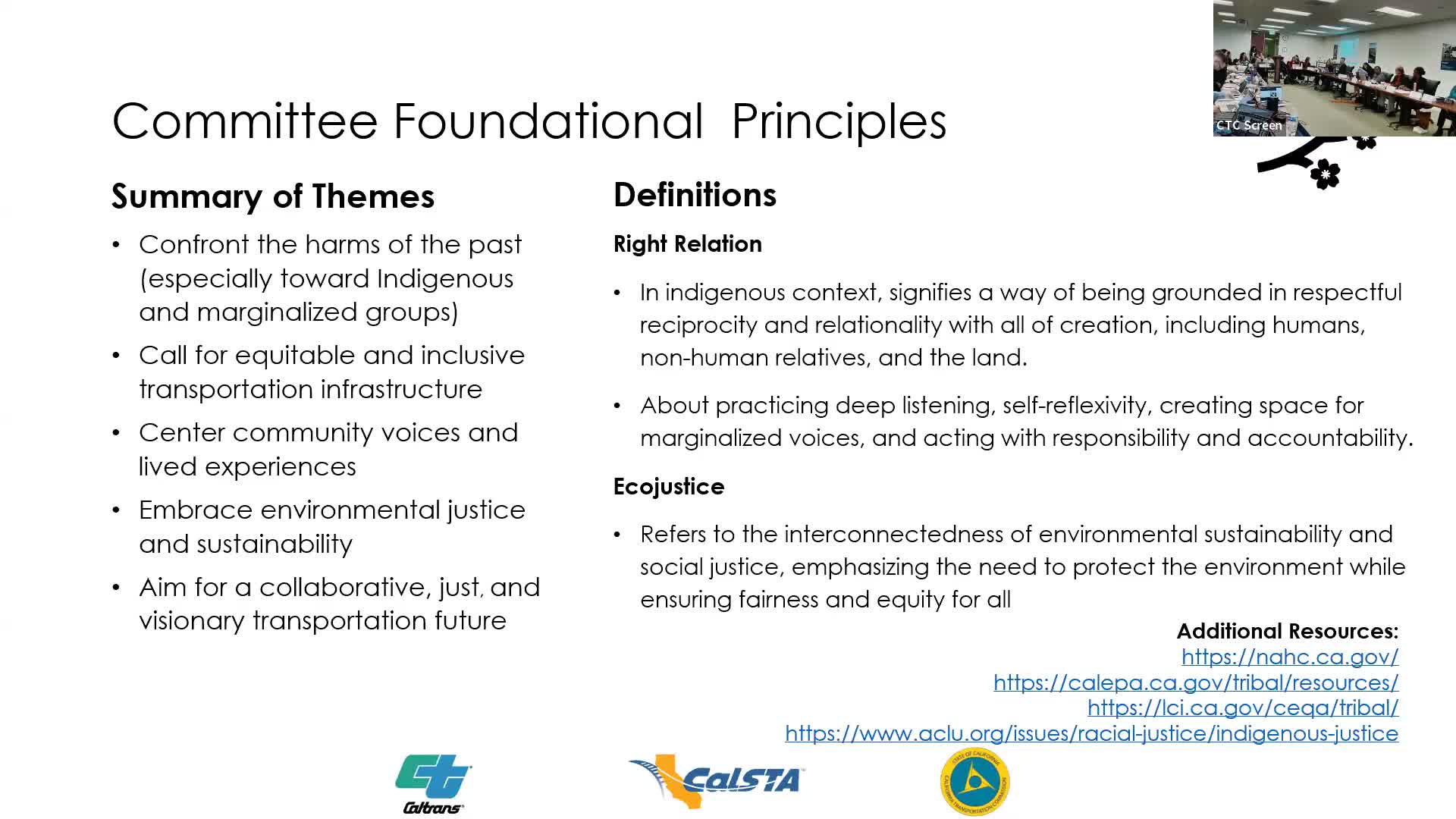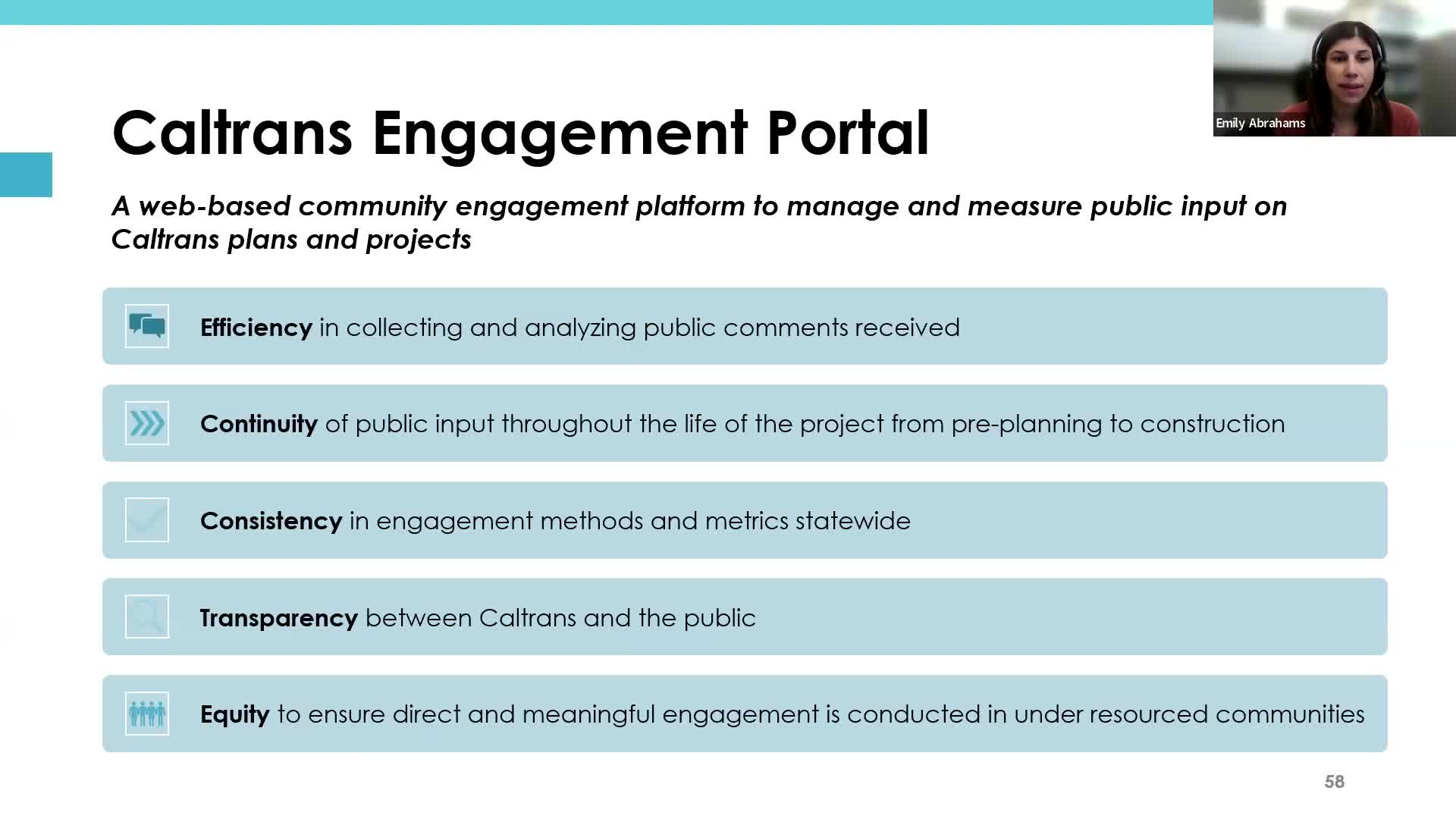Article not found
This article is no longer available. But don't worry—we've gathered other articles that discuss the same topic.

New draft vision and mission aims to make transportation planning "a force for equity"; EAC seeks input on implementation and visuals

Caltrans rolls out engagement playbook, pilot portal and draft director policy to standardize community input

